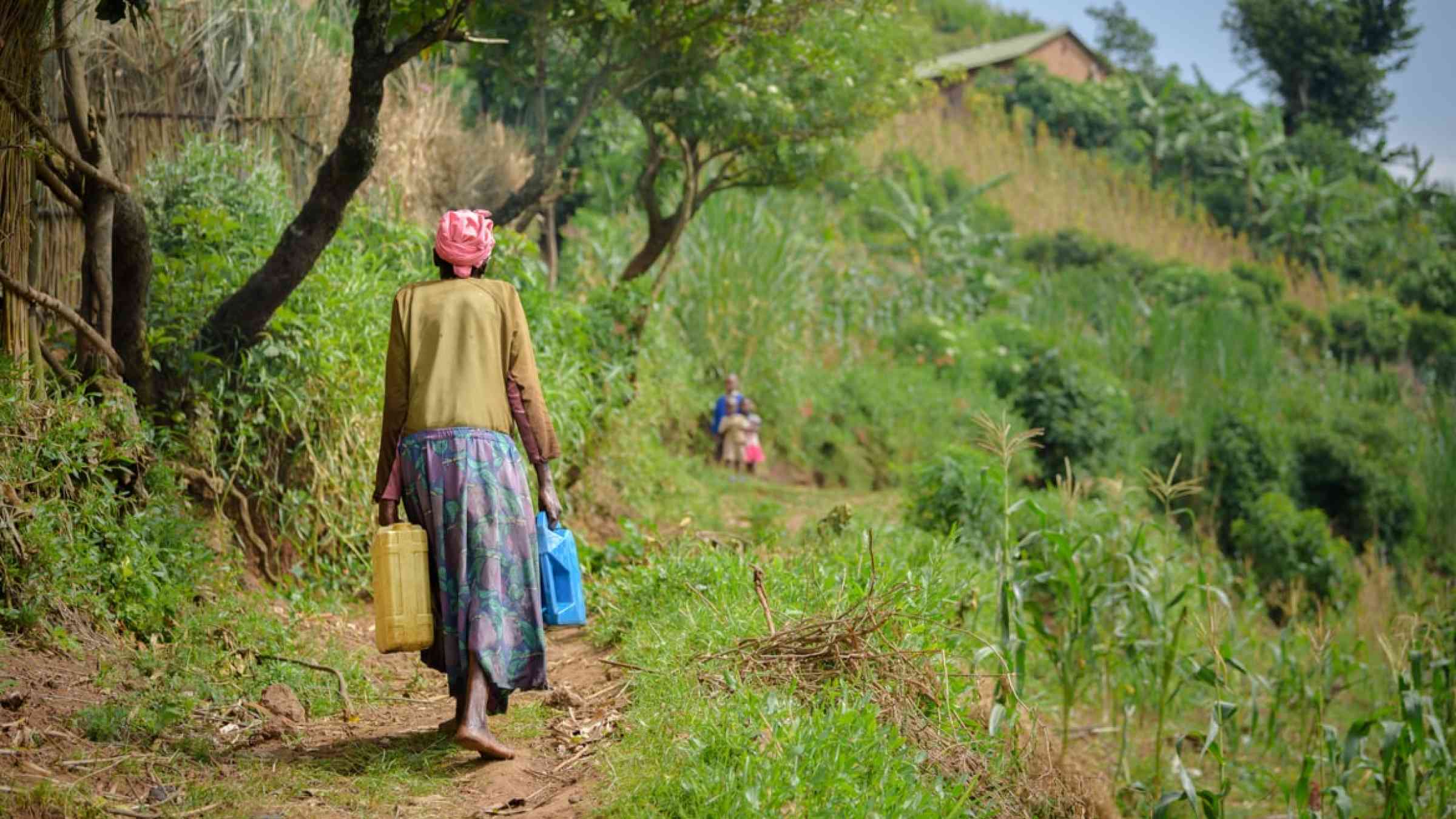Climate risk management promotes peace in Uganda

In the Karamoja region of northern Uganda, conflict frequently erupted among herders and communities over access to water and pasture for livestock.
“We experienced drought sometimes for 90 days,” said Mr. John Ekamarpus Longora, the leader of a kraal, a mobile enclosed livestock camp set up by pastoralists during the dry season. “The trees dry, water levels and sources go down, and conflicts tend to arise because of a scramble for natural resources.”
"Historical data show that climate change is aggravating this problem, lengthening the dry season when violence is most likely," said Mr. Robert Bagyenda, USAID Uganda Environment and Natural Resources Management Project Management Specialist. He is part of the Mission team working with the USAID Securing Peace and Promoting Prosperity (EKISIL) Activity to build peace and sustain livelihoods in Karamoja.
To strengthen communities' access to and management of water and pasture, USAID EKISIL—which means “peace” in the local language of Karamoja—initiated climate risk management (CRM) actions in the Abim, Kaabong, Kotido, and Moroto districts. As described in a 2021 case study, these actions––responding to USAID’s 2016 CRM policy––enabled formal and informal institutions to peacefully oversee and share communal natural resources, including developing community- and government-level agreements, policies, and resource management processes.
“We see the link between conflict and access to natural resources in relation to prolonged drought and climate change variability,” said Bagyenda. “If we don’t address that issue during the prolonged dry season, then we are not likely to achieve the project’s overall goal of mitigating or reducing conflict and building peace in the region.”
Considering CRM in activity design underscored the importance of long-term natural resources planning that anticipates more intense droughts, higher climate variability, and risk of conflict due to resource scarcity. The Activity’s CRM actions increased livestock value, strengthened management and productivity of livestock watering facilities—primarily the 2.3 million cubic meter Kobebe Reservoir—and improved access to natural resources and fertile land. Indirectly, these actions also diversified livelihood options to generate household income, boosted women’s engagement in trade and economic and peacebuilding opportunities, and reduced conflict by uniting people and institutions to protect common interests.
Mr. Andrew Napaja, Uganda Local Governments’ Association Moroto District Council Chairperson, said USAID EKISIL allows the local government to focus on infrastructure development and development partnerships rather than responding to resource-related conflict incidents.
“People are no longer fighting. Why?” he said. “Because they have a natural resource that is required by everyone. If you have water, you have peace.”
USAID EKISIL’s CRM actions included facilitating two Natural Resource Sharing Agreements between four communities, coordinating management and maintenance of the Kobebe Reservoir, and strengthening government policy and systems to better govern the area’s natural resources.
An analysis of these actions—based on key informant interviews featured in the case study—quantified the following benefits:
- Avoided loss of 10,000 to 20,000 head of cattle per year with an estimated annual monetary value of $1.7 million to $3.4 million.
- More than 2 million livestock and 30,000 pastoralists have freer access to water and grazing land annually.
- The Kobebe Dam Peace Dividend project resulted in 180 temporary jobs, 4,050 tree plantings, nine community members trained in contracting processes, and 15,000 hectares of restored land.
- Resettlement of 600 hectares of fertile land, previously unsafe to access because of conflict.
“Our livestock have multiplied,” said Ms. Natalina Moru Achia, a member of the Women’s Peace Forum, which works with USAID EKISIL. “There is free movement without fear of insecurity.”